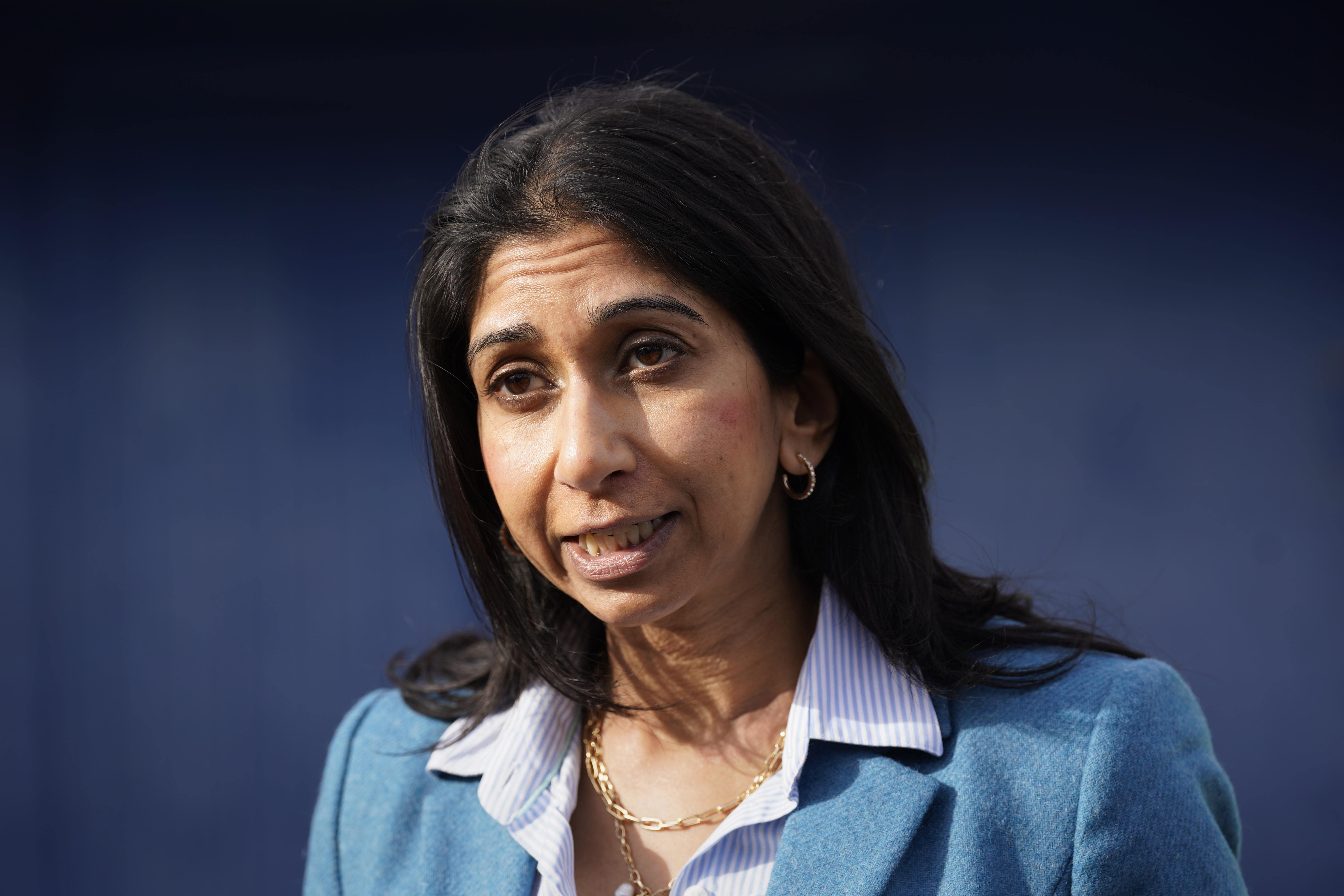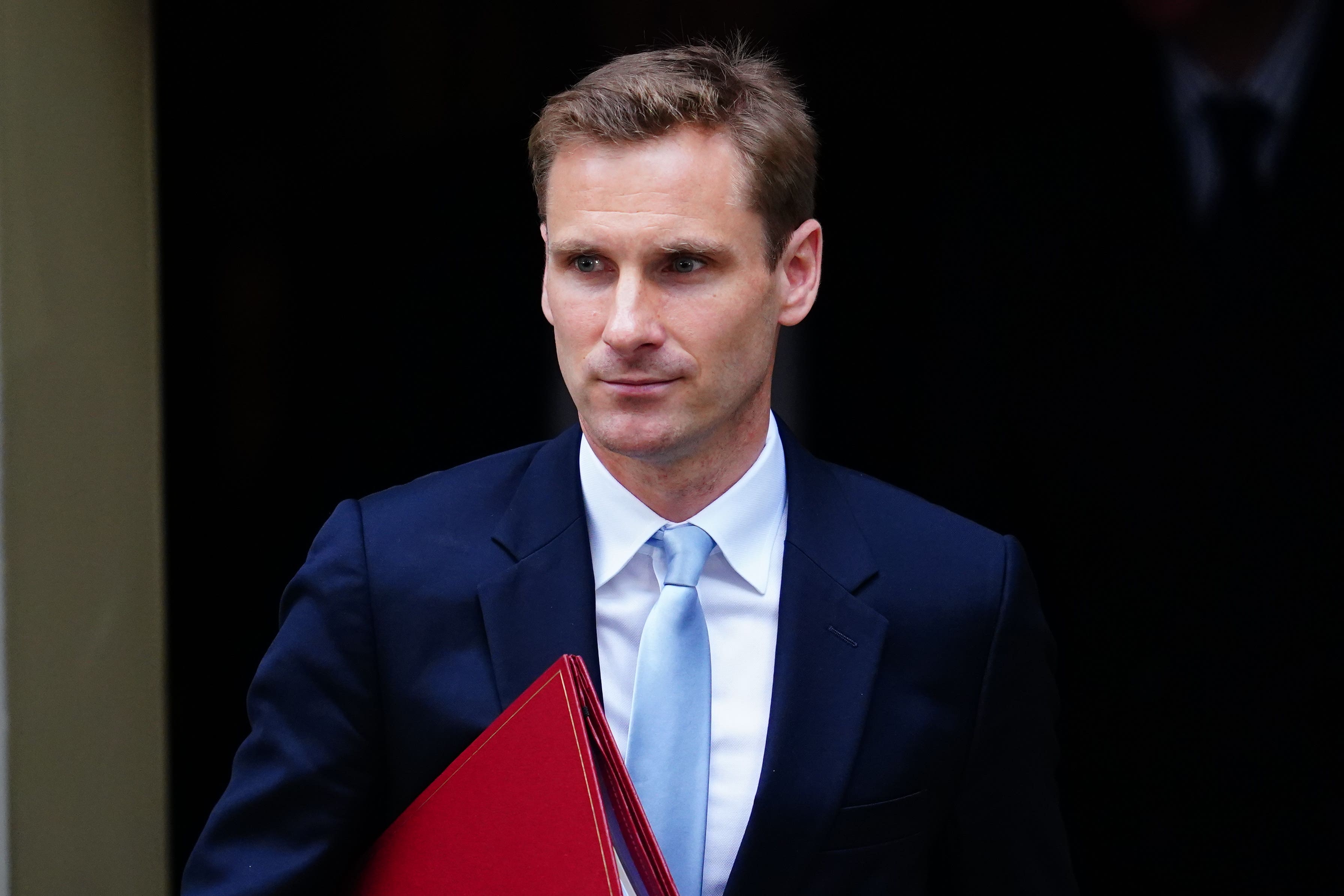Government pushing police to record fewer ‘non-crime hate incidents’
Suella Braverman’s drive for ‘common-sense policing’ sees processes set up after Stephen Lawrence murder changed

Ministers are pushing police to deal with fewer “non-crime hate incidents” by changing processes set up after the racist murder of Black teenager Stephen Lawrence.
The Home Office said new statutory guidance for officers across England and Wales was “spearheaded by the home secretary’s common-sense policing campaign”.
“Posting messages that may offend someone but where no victim has actually been identified should no longer be considered a crime,” a spokesperson said.
“Police will be empowered to make decisions on cases where communications, such as text messages or letters, are malicious or rude, but not threatening. Officers should be on our streets investigating crimes like burglary, not comments made online.”
It comes after Suella Braverman intervened in an Essex Police hate crime investigation, which saw officers seize golli*** dolls from a pub.
A source said she believed “police forces should not be getting involved in this kind of nonsense”, but the force said they were investigating under two separate laws.
Facebook posts seen by The Independent show that the pub’s landlord previously shared far-right propaganda on Facebook and made reference to US lynchings of Black victims.
New guidance created by the Home Office raises the threshold for police recording a non-crime hate incident, changing a process set up in response to the 1999 Macpherson report on Stephen Lawrence’s murder.
It called for “a comprehensive system of reporting and recording of all racist incidents and crimes”.
A government document said the process was later expanded to cover religion, disability, sexual orientation and transgender identity, and that the government now wants to “enhance transparency surrounding the decision-making processes” by police.
Speaking to police leaders in central London on Thursday, policing minister Chris Philp said: “We’re going to make clear that frivolous allegations of malicious communications should not be recorded as an offence unless the criminal threshold has clearly been met.
“We do not think that being rude or insulting is a police matter, officers are not thought police and when something is reported that doesn’t meet that clear criminal threshold we don’t want that to be investigated or recorded as a crime.
“We don’t want to be wasting police time on that kind of thing.”
Separate changes resulting from a National Police Chiefs’ Council (NPCC) review of productivity will streamline the way multiple crimes from single incidents are entered into a database.
The review identified that 443,000 officer hours were spent “filling in forms and dealing with unnecessary administrative tasks”, constraining their ability to respond to incidents.
All reported crimes for a single incident will now be recorded under a “principal offence”, although multiple crimes can still be investigated.
The change is expected to cause a fall in police-recorded crime figures, which have hit record highs since Covid, but officials insist that offences will still be prosecuted even if they are not counted in the same way.
Asked whether the changes to recording practices and malicious communications guidance were an “attempt to try to manipulate crime figures”, Mr Philp replied: “No, it categorically is not.”
Senior police officers have welcomed the reforms from the productivity review but have made no public comment on ministers’ stance on hate crimes.
Mr Philp said: “Victims must always be at the centre of our response to crime. Listening to forces and cutting unnecessary red tape will mean police officers can focus on solving crime and delivering justice for victims, as well as preventing it from happening in the first place.”
A significant amount of police time, estimated to reach over 800,000 officer hours a year, is also being absorbed from calls to mental health incidents that do not involve a crime or safety risk.

Police leaders have long warned they had become the “service of last resort” for other public services and are being used to fill gaps in mental health provision, social work and emergency medical care.
Mr Philp said that officers of all ranks had raised concern with him that cases where there was “no criminal offence or threat to the safety of the individual or public were getting passed to policing rather than being dealt with as a medical or social services incident”.
He said the government had drawn up a National Partnership Agreement between police, councils and NHS bodies to extend a “right care, right person” model trialled in partnership.
The minister said he hoped changes would be rolled out by the summer, adding: “That can really help individuals suffering from mental health crises as well as saving enormous amounts of police time that can be better spent protecting the public.”
Mr Philp said that when the new structure is in place, he would back police to refuse calls to mental health incidents, except where there is a risk of harm to the person in crisis or the public.
In a question and answer session, some representatives of ambulance and NHS associations expressed concern that the changes would leave vulnerable people without any response at all, but Mr Philp said funding for mental health services would ensure sufficient support was in place.
“We need to make sure there aren’t any gaps when we implement this because that doesn’t help anybody,” he added.
“Where there are issues that do require a police response the police will absolutely be there to deal with those.”






Join our commenting forum
Join thought-provoking conversations, follow other Independent readers and see their replies
Comments